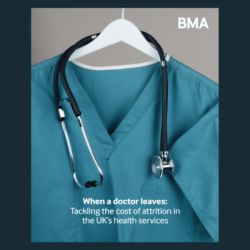In September of this year, our group of international patient advocates and scholar-activists had a congress at the Royal Netherlands Academy of Arts and Sciences. We had several good discussions about prevention, breast cancer prevention, and early diagnostics and prevention of HPV-related cancers. Mostly, we discussed cervical cancer but learned that not only cervical cancer could be prevented and eradicated via vaccination. In total, seven devastating cancers can be prevented. One of our scholar-activists demonstrated that the HPV virus often causes oral cancers and head and neck. Therefore, these cancers can be prevented and eradicated through vaccination.
Education
What became clear is that the education of citizens is of great importance. When you prevent cancer, you have to direct yourself to citizens, not only patients. Via education, we can help people become aware of the necessity of a healthy lifestyle and to have themselves vaccinated against the HPV virus. Nowadays, in the Corona-era, we experience the need for good information and education as a way to prevent people from starting to believe nonsense. When people doubt the importance of vaccination, I often refer to the quote of Steven Pinker in his excellent book ‘Enlightenment Now’: ‘Scientific knowledge eradicated smallpox, a painful and disfiguring disease which killed 300 million people in the 20th century alone. In case anyone has skimmed over this feat of moral greatness, let me say it again: ‘Scientific knowledge eradicated smallpox, a painful and disfiguring disease which killed 300 million people in the 20th century alone.’
Early diagnostics
Via education and awareness, we enable citizens also to have themselves screened and get them early diagnostics. Finding cancers in an early stage makes it possible to increase overall survival. And, it is also cost-effective. Most low- and middle-income countries do not have the resources to treat late-stage cancers but can do a lot about prevention (cheap) and early diagnostics (mostly cheap and prevents expensive treatments).
Finance
We discussed this all in our World Campus, where all continents are present. We learned that funding is of great importance when it comes to prevention, screening, and early diagnostics. And we also learned that with little focal money, we can achieve a lot. Screening for cervical cancer can be done with vinegar, and the treatment can be done for around $10,00. Here in the western world, we have different techniques that cost a lot of money, and the result might be a little better, but for low- and middle-income countries, perfection is the enemy of the good. A lot is achieved with little money, and we can make this even bigger. For cervical cancer, the program that brings this is ‘Screen and Treat,’ a well-setup program that is successful in African countries. This has to be and can be extended to more countries and continents.
Government
We should be aware that the only stakeholder in the medical-industrial complex that has an advantage of prevention is the patient. As Bob Weinberg, CEO and professor at the Whitehead Institute in Boston, once stated at one of our Annual Congresses: ‘You patient advocates are by far much better equipped to explain the importance of prevention than we scientists!’ And yes, we are. We know what it is to get diagnosed with cancer, being treated and die. All other stakeholders have an interest in more patients. More patients mean more revenue and more profit.
For this, government is needed in prevention. It should be their number one mission! We patient advocates can’t do this alone. So, don’t leave us alone.
Equal position
The only way to get out of this is to have patient advocates and scholar-activists at the table in the position of (co-)decision-makers. Governments should take their responsibility and put us in that position. But the responsibility of governments goes further than just this. Prevention has a lot to do with regulation. A healthy lifestyle can be achieved by regulation (some examples):
- Do not forbid smoking but instead forbid the selling of tobacco. This can be done from the human rights perspective. Governments have the obligation to prevent their citizens from being exposed to a deadly product
- No more or less sugar, fat and salt in products. Governments can impose this. This way, there is no competitive disadvantage.
- All children at primary and secondary schools - five hours of sport per week! This increases short-term costs, but even after a couple of years, there is a benefit. And in the long-term the benefit is huge, both for quality of life and from the cost perspective.
- Be creative and think of more...
These are all measures that have an enormous impact on the quality of life and, also, on the economy. It is a tobacco industry lie that taxes on tobacco are higher than the costs of treating the sick.
But the most important and easy-to-do thing for governments is bringing all stakeholders at one table in an equal position. We will have the right discussion with all interests and go for the ‘win-win.’ I’m convinced there is one. And in the exceptional situation that there is not, patient advocates will decide in favour of the patient, as it should be in healthcare.
Peter Kapitein, patient advocate Inspire2Live

























